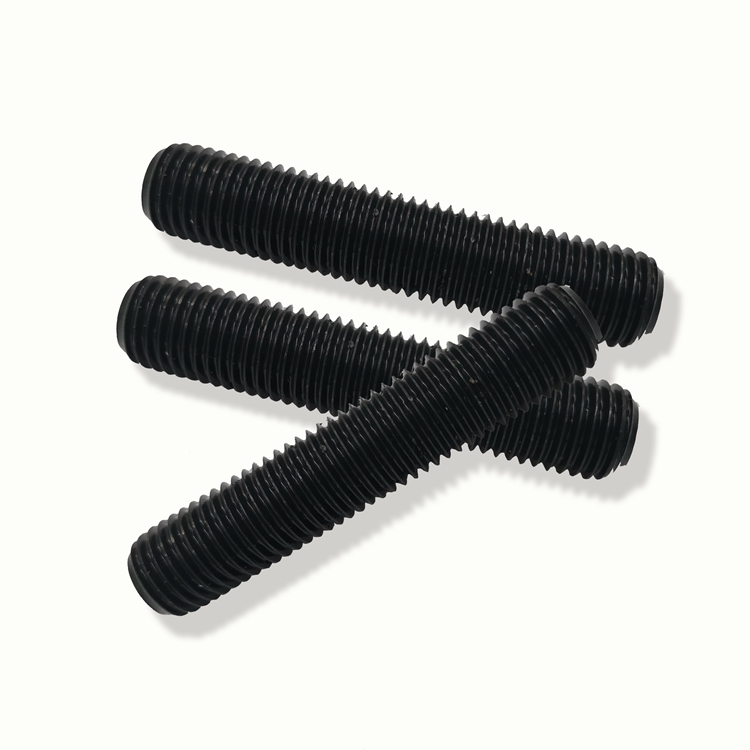Understanding the Importance of OEM Camber Bolts for Vehicle Alignment and Performance Optimization
Jul . 31, 2024 04:38 Back to list
Understanding the Importance of OEM Camber Bolts for Vehicle Alignment and Performance Optimization
Understanding OEM Camber Bolts Importance and Benefits
When it comes to optimizing vehicle performance, particularly in terms of handling and tire wear, camber adjustment plays a significant role. For car enthusiasts, maintaining the correct alignment isn’t just about aesthetics; it directly affects the car's performance and safety. One of the critical components involved in this adjustment is the OEM camber bolt, which can greatly influence the overall dynamics of a vehicle.
What are Camber Bolts?
Camber bolts are specialized fasteners that allow for the adjustment of the camber angle of a vehicle's wheels. The camber angle refers to the tilt of the wheels in relation to the vertical axis of the car when viewed from the front or rear. Positive camber means the top of the wheels tilts outward, while negative camber means they tilt inward. An improper camber setting can lead to uneven tire wear, reduced grip, and compromised handling.
OEM camber bolts are manufactured by original equipment manufacturers and are designed specifically for certain car models. This precision ensures that they fit perfectly and provide the correct range of adjustment needed for factory specifications.
The Importance of Camber Adjustment
Proper camber adjustment enhances tire performance. Correct camber angles ensure that the tires maintain maximum contact with the road during various driving conditions. This maximizes traction and improves overall vehicle stability, particularly during cornering. Typically, negative camber is preferred for performance vehicles as it allows better grip through turns; however, excessive negative camber can lead to increased tire wear on the inside edges.
Moreover, improper camber can affect alignment settings that influence other angles such as toe and caster. Therefore, having proper camber bolts is essential for achieving an optimal alignment that supports both performance and safety.
oem camber bolts

Benefits of OEM Camber Bolts
1. Precision Fit OEM camber bolts are engineered to fit specific vehicle models. This ensures that they provide an accurate adjustment range without the risk of incorrect fit or compatibility issues that could arise with aftermarket parts.
2. Durability Original equipment manufacturers use high-quality materials and finishes to ensure their products withstand the rigors of driving. OEM camber bolts are typically designed to be more durable than many aftermarket options, which can suffer from wear or breakage during use.
3. Ease of Installation Installing OEM camber bolts usually requires less modification. They are designed to work seamlessly with other components of the suspension system, making installation smoother and less time-consuming.
4. Maintaining Vehicle Integrity Using OEM parts helps maintain the vehicle's integrity. Aftermarket components may not always comply with the original specifications, potentially compromising the handling characteristics or safety features engineered into the vehicle.
5. Warranty and Reliability Utilizing OEM parts often means more reliable performance and less risk of issues during operation. This is particularly vital for those who rely on their vehicles for daily use or high-performance driving.
Conclusion
In summary, OEM camber bolts are critical components for any vehicle when it comes to achieving proper wheel alignment and enhancing driving performance. They facilitate precise adjustments to the camber angle, helping to reduce tire wear and improve handling. Investing in high-quality OEM camber bolts not only ensures better performance and safety but also protects the integrity of your vehicle. Whether you're a casual driver or a motorsport enthusiast, understanding and utilizing the benefits of OEM camber bolts can make a significant difference in your driving experience.
Latest news
-
Durable Bolts for Lawn Mower Handle - Top Supplier & Manufacturer
NewsAug.22,2025
-
High-Quality Bolts for Lawn Mower Handle Supplier & Manufacturer
NewsAug.21,2025
-
Reliable Axle Nuts Supplier | High-Quality Automotive Parts
NewsAug.19,2025
-
Premium Wire Bolts Suppliers | Durable & Reliable Fasteners
NewsAug.18,2025
-
Leading Metric Wood Screw Companies & Manufacturers
NewsAug.17,2025
-
Top Wire Bolts Suppliers - Quality & Durable Fasteners
NewsAug.15,2025
